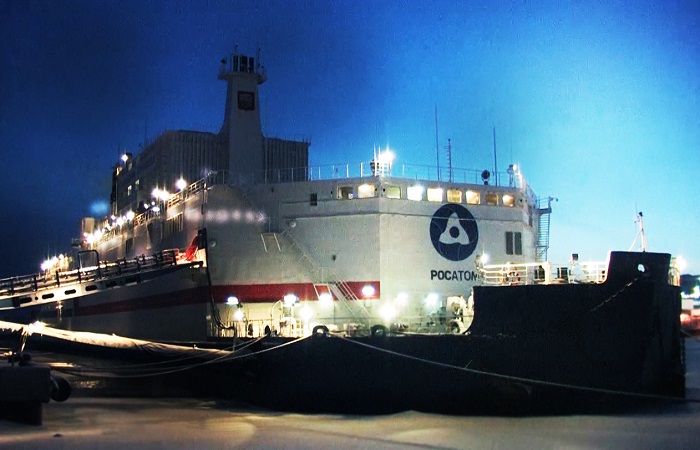
Court decision puts Norway on the hook for massive CO₂ Storage build-out
A ruling by the European Free Trade Association Court that Norway’s continental shelf falls under the European Economic Area Agreement could dramatic...
News

Publish date: May 25, 2020
News
Russia’s controversial floating nuclear power plant, the Akademik Lomonosov, has been fully commissioned at a port in Siberia’s Far East, despite widespread environmental and safety concerns, the nuclear utility Rosenergoatom reported on Friday.
In a statement, Andrei Petrov, the company’s head, said that that construction of the floating plant “could be considered complete,” and the Akademik Lomomosov was “now the eleventh commercially operating nuclear power plant in Russia and the northernmost worldwide.”
Described by Rosatom, Russia’s nuclear corporation, as the world’s “only floating nuclear power unit,” it’s envisaged that the Akademik Lomonosov — which set sail from the Russian port of Murmansk in last summer — will become an important part of the Chukotka area’s power supply.
It has two KLT-40C reactors, which have a capacity of 35 megawatts each. Rosatom has begun decommissioning the Bilibino Nuclear Power Plant, which has served the region since the 1970s, expecting that the Akademik Lomonosov will replace its energy.
The plant first started generated electricity in December of 2019, when the power it produced was used to light a Christmas tree on the central square of Pevek, its home port.
While the Russian press describes the Akademik Lomonosov as the world’s first floating nuclear plant, that isn’t precisely true. The history of floating nuclear facilities stretches back to the USS Sturgis, which was an American vessel that was converted into a nuclear plant in the 1960s.
Still, the Akademik Lomonosov represents an audacious experiment that has, for better or worse, confounded critics and defied warnings from environmentalists who say the vessel is too vulnerable to the elements. Greenpeace has dubbed it a “floating Chernobyl” and a “nuclear Titanic.”
For its part, Bellona has opposed construction of plant since it began in 2006, publishing a detailed catalogue of its concerns in a report it released in 2011.
Rosatom says the floating nuclear power plant is suited to remote areas and “island states” which need stable and in its own words, “green,” sources of energy.
But Bellona has said that these aspirations to operate the plant in remote regions are part of what makes it so dangerous. Rescue operations in the event of an accident would be complicated by distance.
Memories of Fukushima’s waterlogged reactors have also failed to fade, and the thought of a nuclear power plant as vulnerable to tsunamis as the Akademik Lomonosov strikes an anxious chord among environmentalists. It would be difficult, if not impossible, to abate the consequences of a nuclear accident in the harsh environment of the Arctic.
For its part, Rosatom has said that its floating nuclear power plant has been designed with a “great margin of safety” which exceeds “all possible threats” and makes the nuclear reactors invincible to tsunamis and “other natural disasters.”
It adds that the nuclear processes at the facility meet requirements from the International Atomic Agency and don’t pose an environmental threat.
Rosatom is said to be mulling the build of a second floating nuclear power plant, with twin 50 megawatt reactors. The company has previously claimed t that interest in the technology has come from North Africa, the Middle East and Southeast Asia.

A ruling by the European Free Trade Association Court that Norway’s continental shelf falls under the European Economic Area Agreement could dramatic...

Bellona held a seminar on countering Russian disinformation in the Arctic at the Arctic Frontiers international conference in Norway

Our December Nuclear Digest, reported by Bellona’s Environmental Transparency Center, is out now. Here’s a quick taste of three nuclear issues arisin...

Bellona has launched the Oslofjord Kelp Park, a pilot kelp cultivation facility outside Slemmestad, about 30 kilometers southwest of Oslo, aimed at r...